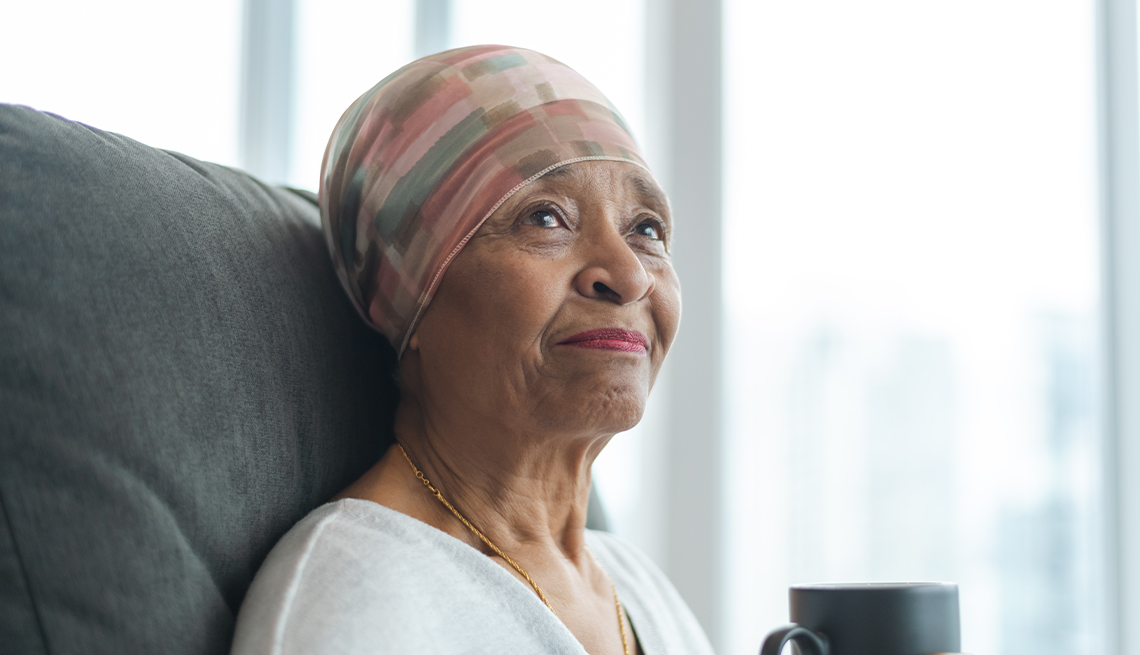Play all audios:
IS THERE ANYTHING PEOPLE WITH CANCER CAN DO TO PROTECT THEMSELVES? There is no magic immune booster, Winer says. And without a vaccine for the coronavirus, the best advice for someone living
with cancer is “to do what we're all doing” and what the Centers for Disease Control and Prevention (CDC) recommends, he adds. This includes washing your hands often, staying home as
much as possible and maintaining a distance of at least 6 feet between yourself and other people when you go out. It's also a good idea to make sure you have adequate supplies of your
medications on hand and to clean and disinfect your home regularly. The CDC recommends that people wear cloth face masks or face coverings in public when proper physical distancing is
difficult to maintain. But if you are undergoing treatment, your doctor may recommend another type of face mask, to help lower your exposure to germs. The ACS has advice on how to prevent
infections in people with cancer, and the National Cancer Institute has tips on how to best prepare for any emergency while living with cancer. ARE TREATMENTS BEING DELAYED? Cancer patients
may experience a disruption in routine care during the coronavirus pandemic, as hospitals and health care facilities across the country postpone nonurgent appointments and surgeries. Cancer
treatment plans are also being revised at some centers, including Dana-Farber. "From a chemotherapy and radiation standpoint, we're thinking longer and harder about our
treatments,” which can compromise the immune system but also potentially expose someone to the virus by bringing the person into the hospital and in close contact with health care workers,
Winer explains. "Anything that gets you out of your house and in contact with other people puts you at greater risk [of catching the coronavirus],” he adds. Make sure you check in with
your doctor for the latest updates on your care. SHOULD I STILL GET MY CANCER SCREENING? No. The ACS recommends that no one go to a health care facility for routine cancer screenings, such
as mammograms and colonoscopies, at this time. When restrictions ease, however, it's important to reschedule your screening appointment. “Remember, these screening tests save lives,”
Richard Wender, M.D., chief cancer control officer at the ACS, said in a statement. “Getting back on track with cancer screening should be a high priority.” Screening tests, though, are
different from the tests your doctor would order if you were experiencing cancer symptoms, the ACS points out. Be sure to reach out to your health care provider if you have any concerns.
"We're going to get past all of this,” Dana-Farber's Winer says. “It's going to result in some changes in the way we approach cancer care,” including a shift toward more
video visits and virtual consults, “but I don't know that all those changes are bad.” CORONAVIRUS SYMPTOMS MILD COVID-19 CASES: * Fever * Cough * Shortness of breath _4 new symptoms
people may also experience:_ * Chills * Muscle pain * Sore throat * New loss of taste or smell _Other less common symptoms have been reported, including gastrointestinal symptoms like
nausea, vomiting, or diarrhea, the CDC says. _ COVID-19 EMERGENCY WARNING SIGNS: * Trouble breathing * Persistent pain or pressure in the chest * New confusion or inability to arouse *
Bluish lips or face Source: Centers for Disease Control and Prevention

